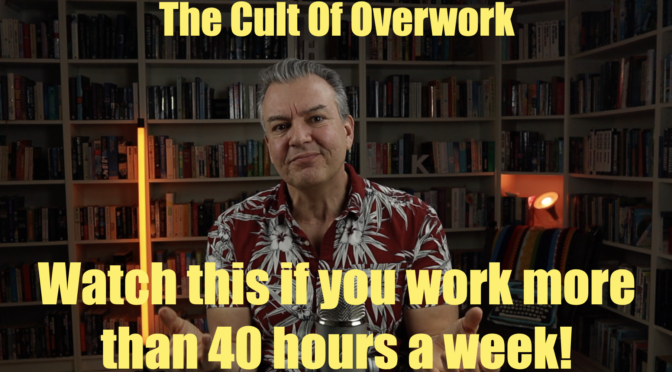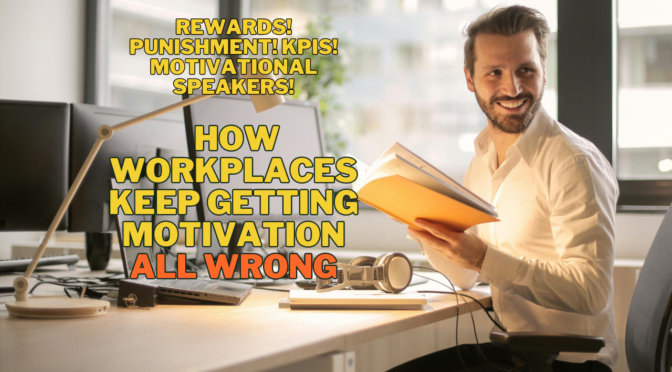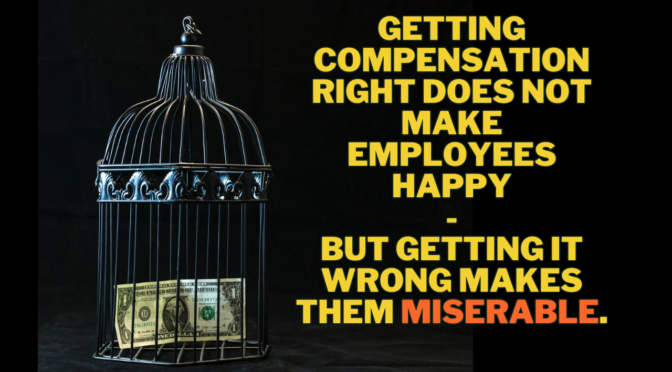I have read literally hundreds of books on studies and research into great workplaces. Here I present my 5 favorite ones and what their main insights are.
-
Harness the power of a positive mission – my interview with Ynzo van Zanten
Can a company do good in the world AND achieve profits and growth at the same time?
Tony’s Chocolonely is proof that this is not only possible, it’s good for employees, consumers, the bottom line and the world.
I could not be happier with how this Heartcount webinar went – Ynzo is such a great evangelist for a good cause.
Learn from Ynzo van Zanten exactly how your company can harness the power of a positive mission. You can also learn about Tony’s baby bonus – I’d never heard of that idea before and it’s AWESOME!
Related posts
- Learn more about Heartcount – the best tool for measuring employee happiness and engagement
- What your workplace should learn from Covid
- 5 reasons why money doesn’t motivate people
-
Free webinar: Harness the Power of a Positive Mission
What do you think is a chocolate company’s mission? To make your day with a chocolate bar? Not just that. Tony’s Chocolonely is a chocolate company that makes the world better by improving their workplace. This was enough reason for us to ask their Choco Evangelist, Ynzo van Zanten to share their story at the next Heartcount webinar.
Join us on May 26 from 4:00 – 4:45 pm CEST and hear exactly how Tony’s Chocolonely improves their business results and make the world better at the same time.
What Is Special about Tony’s Chocolonely?
Tony’s Chocolonely isn’t an average chocolate company, but a chocolate company with a huge mission – to end modern slavery and exploitation in the cocoa industry. With amazing chocolate recipes, they set the example and show that chocolate can be made in a more responsible way – in taste and packaging, through long-term relationships with cocoa farmers, and the way they handle an open and transparent value chain. You can find more about Tony’s Chocolonely activities from their Choco Evangelist, Ynzo van Zanten at our webinar.
If you are looking for new ways to create an even better company culture, don’t miss a chance to be inspired by Ynzo at our next webinar, “Harness the power of a positive mission”.
-
How to create a happy workplace in ANY industry
Whenever we talk about happy workplaces, a lot of the conversation tends to be about big US corporations with huge budgets like Google, Zappos or Southwest Airlines.
But happiness is possible in (nearly) any industry and in any country.
That’s why I was so excited to talk to Nicolás González Restrepo for our latest Heartcount webinar and learn how the company Contento BPS S.A in Colombia creates a happy culture for their 2,000 people – even in a Latin American machismo culture and even though their main business is as a call center for debt collections.
Learn how they created a great culture and how it helped improve absenteeism, employer brand and financial results.
And if they can do it, what’s your company’s excuse? :)
-
Free Webinar: Create a happy workplace in ANY industry
Everyone who cares about workplace happiness has heard about Google, Zappos and Southwest Airlines.
But have you ever heard of the call center Contento in Colombia? I hadn’t until I spoke at a conference in Chile and met the awesome Nicolas Gonzalez Restrepo and heard what a great culture he’s helped create for the 2,000 people who work there.
So join our next free Heartcount webinar on April 22nd and learn how you can create a happy culture – even if your company is not a rich US corporation with a huge budget.
-
What your workplace should learn from COVID
I had a great talk yesterday with the awesome Rich Sheridan about the post-COVID workplace for the latest Heartcount webinar.
Here’s the entire video of our conversation – he shares some phenomenal tips!
-

I QUIT! How you get out of a bad job before it’s too late.
Some people want you to believe that quitting is weak and for losers. They’re lying and we need to normalize leaving jobs that are not good for us.
In this video we take a deep look at what happens when you’re unhappy at work, how you can know it’s time to quit and how you can support others who need to get away from a bad job.
Content:
(00:00) 1: Frogs aren’t idiots
(01:01) 2: Introduction to quitting
(03:45) 3: How hating your job hurts you
(06:56) 4: Exposing the anti-quitting propaganda
(18:05) 5: The excuses people make for not quitting
(27:23) 6: Should you quit?
(32:47) 7: 21 perfectly valid reasons for quitting
(40:21) 8: What if you can’t quit
(46:24) 9: How to quit
(47:39) 10: Should you always find a new job first before you quit?
(49:42) 11: We should celebrate quitters
(59:22) 12: I quit!References, articles and books from the video
Relationship between a bad job and poor health
A bad job makes you gain weight
Unhappy workers are less productive
Effective propaganda exploits existing biases
How Herbalife and other MLMs scam people
The No Asshole Rule – excellent book by Bob Sutton
Turing pharmaceuticals raised prices
Stories from people who quit without first finding a new jobs
Apprentice car mechanic commits suicide after being bullied
The most basic freedom is the freedom to quit
The true cost of employee turnover
Bosses try to predict who will quit
Related posts
-
Free Webinar March 25: Work after COVID
What should your workplace learn from COVID-19?
As the world is getting to grips with COVID-19, it’s time to look forward. Will we just go back to our old work habits or are there things we can learn from the pandemic to make our workplaces better, happier, safer and more productive?
In this Heartcount webinar I’ll talk to Rich Sheridan, CEO and Chief Storyteller of Menlo Innovation and the author of Joy Inc and Chief Joy Officer. We’ll hear about what Rich’s company Menlo Innovations learned from the pandemic and share some insights from other great organizations.
-

The Cult Of Overwork
60-hour workweeks (or more!) kill people. That seems bad and we should probably stop it. In this video I explain how we get back to or even below 40 hours of work a week.
References from the videos
CNN’s article on “The Secrets Of Greatness.
Working hours in different countries.
The Overworked American: The Unexpected Decline of Leisure, by Juliet B. Schor.
The Industrial Revolution In Manchester.
Rutger Bregmann: Utopia For Realists.
Tom Markert: You Can’t Win A Fight With Your Boss.
HBR: Long Hours Backfire For People And For Companies.
Long working hours hurt cognitive performance.
John Pencavel: Productivity for WW1 Munitions Workers.
Overtime in game developers doesn’t work.
Negative Health Effects Of Overwork.
Very few people can get by on less than 7 hours of sleep.
Gender bias in overwork cultures.
Men pretend to work 80-hours weeks.
What’s really holding women Back.
People overestimate their working hours.
People underestimate health risks of overwork.
Fred Gratzon: The Lazy Way To Success.
There are some career benefits to overwork.
Interview with Rich Sheridan at Menlo.
Knowledge Workers Are More Productive From Home.
Longer school days do not lead to better academic outcomes.
Homework does not help students.
Malcolm Gladwell’s 10,000-hour rule debunked again.
Hazing reinforces hierarchy, conformity and discipline.
Benjamin Hunnicutt: Kellogg’s Six-Hour Day.
European Union – right to disconnect law.
Universal Basic Income Explained.
US workers don’t take all their vacation days.
30-hour work week at Toyota Center Gothenburg.









